Taking care of your teeth and gums does more than just give you a great smile. It helps your whole body stay healthy. Research shows that mouth health is directly connected to your overall health.
Fortunately, simple daily habits can make a difference. Brush and floss regularly, eat tooth-friendly foods, and visit your dentist. Stick with these easy steps, and you’ll soon notice your gums looking pinker, your teeth feeling cleaner, and your smile shining brighter.

Everyday Tips to Keep Your Teeth Strong & Clean
Brush Your Teeth Properly
Brushing your teeth is the foundation of a healthy oral care routine. Try brushing more than twice a day, so you get the full benefits of scrubbing away germs.
The type of toothbrush you use is important too. Get a soft-bristled toothbrush with a small head that comfortably fits in your mouth. Hard bristles can cause gum irritation. Better yet, get an electric toothbrush because they do the scrubbing for you and at a better rate.
When brushing, hold your toothbrush at a 45-degree angle and brush in small circular motions. Be sure to cover all surfaces of your teeth, including the front, back, and chewing surfaces. Aim for at least two minutes of brushing each time.
Bacteria on your tongue can cause bad breath and oral health problems. Gently brush your tongue or use a tongue scraper to remove the buildup.
Over time, bristles wear out and become less effective. Replace your toothbrush every three to four months or sooner if the bristles appear frayed.
Floss Daily
While brushing is important, you can’t reach every area of your mouth. Dental floss removes plaque and food particles that brushing alone can’t reach. Here’s some tips on flossing:
- Make sure that you use enough floss. Take about 18 inches of floss and wind it around your middle fingers, leaving about two inches between them.
- Gently guide the floss between your teeth using a back-and-forth motion. Curve the floss around each tooth in a C shape, reaching below the gumline.
- Avoid snapping the floss into your gums, as it can cause injury. Instead, use a gentle up-and-down motion to remove plaque.
- Make sure you floss the teeth at the back of your mouth, as they are often neglected but prone to decay.
Cut Back on Sugary Treats and Drinks
Sugar might taste great, but it’s one of the biggest culprits behind cavities. The harmful bacteria in your mouth love sugar. They feast on it and produce acids that attack your tooth enamel. Over time, these acid attacks can lead to decay and cavities.
The more often you snack on sweets or sip sugary drinks, the more fuel you give those bacteria. Instead of cutting out sugar completely, try these smarter swaps:
- Choose fresh fruit over candy or cookies when you crave something sweet.
- Drink water instead of soda or juice. Add slices of lemon or berries for natural flavor.
- Save treats for mealtimes rather than grazing all day. This gives your saliva time to neutralize acids.
Reducing sugar doesn’t just protect your teeth, because it’s better for your overall health too. Small changes can keep your smile strong and cavity-free.
Visit Your Dentist Regularly
Regular dental check-ups keep your oral health in the best shape. Your Virginia Beach dentist can detect and treat oral problems before they become more serious.
- Schedule dental visits every six months or as recommended by your dentist.
- Professional cleanings remove plaque and tartar buildup, reduce the risk of gum disease, and catch cavities early.
- Regular exams help identify any potential issues, like tooth decay, gum disease, or oral cancer.
- Discuss any concerns or changes in your oral health with your dentist during these visits.
Use Mouthwash for Extra Protection
Mouthwash can help kill bacteria that brushing and flossing miss. Look for an alcohol-free mouthwash with fluoride to strengthen your teeth. Swish it around for 30 seconds after brushing to reach spots your toothbrush can’t. But remember, mouthwash doesn’t replace brushing or flossing.
Drink More Water
Water is your mouth’s best friend. It washes away food bits, keeps your saliva flowing, and helps prevent dry mouth. If your tap water has fluoride, even better because it naturally strengthens teeth.
Try carrying a water bottle and sipping throughout the day, especially after meals. Swishing water after eating can help if you can’t brush right away.
Chew Sugar-Free Gum
Chewing gum can actually help your teeth. Sugar-free gum with xylitol makes your mouth produce more saliva, which neutralizes acids and washes away bacteria. Pop a piece after meals if you can’t brush. Just avoid gum with sugar. It feeds cavity-causing bacteria instead of fighting them.
Protect Your Teeth from Grinding or Injury
Do you grind your teeth at night or play sports? Both can damage your smile. If you wake up with jaw pain, ask your dentist about a night guard. For sports, wear a mouthguard to prevent chips or knocked-out teeth. A small step now can save you from big dental problems later.

